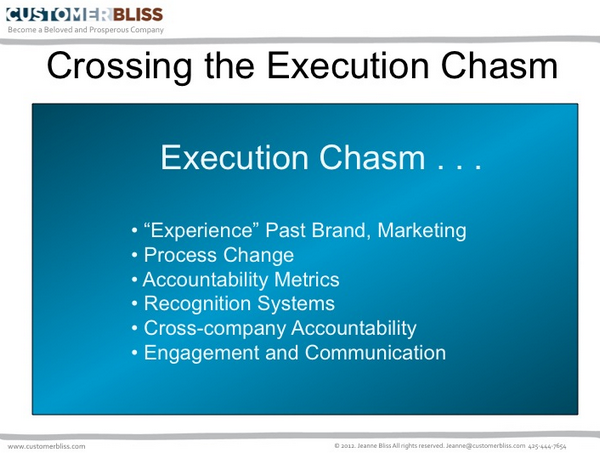This is a guest post from Jeanne Bliss — customer experience expert and author of “I Love You More Than My Dog.” See the original post this is adapted from and more like it on her blog.
There are skill sets specific to driving culture change that need to be present when doing this customer experience work. They are not obvious or natural skills considered necessary to the running of an operating area. The lack of these skills comprises the execution chasm.
Experience in Completed Projects — Brand and Marketing
Experience from completed project work brings with it huge gains in knowledge, skills, and insights. This crucial past experience of many start-to-finish achievements will also optimize the customer experience work.
Process Change
Driving the organization to make changes in how it does its work to improve interactions with customers.
You need the process change skill set in the group that leads the customer work. This will also include the task of facilitating the organization to move beyond fixing the broken issues to redesigning (and mapping) a new customer experience. (You may not be ready for this now, but you’ll want to get to this stage.)
While process change skills may exist in some pockets in marketing, it’s important to determine if anyone has the background and ability to do the complex mapping that occurs when you map the experience across multiple silos. This may be a skill set that you bring in from outside the organization as a consultant, but someone from within the organization will be required to manage the process.
Accountability Metrics
Translating and adapting the variety of customer experience metrics.
This also includes close collaboration with executives to determine how and when they will hold people accountable. Someone has to be able to work this into some sort of system and event that people can count on and perform to.
Recognition Systems
Tying the priority to action, which is putting the corporation’s money where its mouth is, so to speak.
Recognition systems won’t happen naturally. If people are left to their own devices, they’ll come up with all sorts of things that will send completely different messages. The point here is not to make everything a corporate program. But there does need to be some overriding objectives and performance standards that people will be rewarded for customer performance.
Cross-Company Accountability
You can call this “herding cats” and it’s either a skill that someone really loves doing or avoids like the plague.
This is the work of bringing people together to agree on where you’re headed. It’s the fun times of facilitating the meetings, workshops, and accountability forums.
Engagement and Communication
The most forgotten yet one of the most critical aspects of customer experience work. Leaders need to communicate the when, the why, and the how of the work. The company needs to receive constant updates, encouragement, and feedback on how the effort is going.
Most importantly, customers need to be told (and retold) how the company is listening to them and making improvements on their behalf. The perception of the customer experience work and its success is strapped to the back of the communication plan, which is often completely void from this work.

About Jeanne Bliss
As “Chief Customer Officer” for Lands’ End, Mazda, Coldwell Banker, Allstate, and Microsoft, Jeanne got “customer” on the strategic agenda, earned 98% loyalty rates, and changed experiences across 50,000-person operations. Jeanne now runs CustomerBliss to create an actionable path for profitability and business growth -- through earning customer and employee raves. Her best-selling books are Chief Customer Officer and I Love You More than My Dog: Five Decisions that Drive
- Web |
- More Posts(64)


